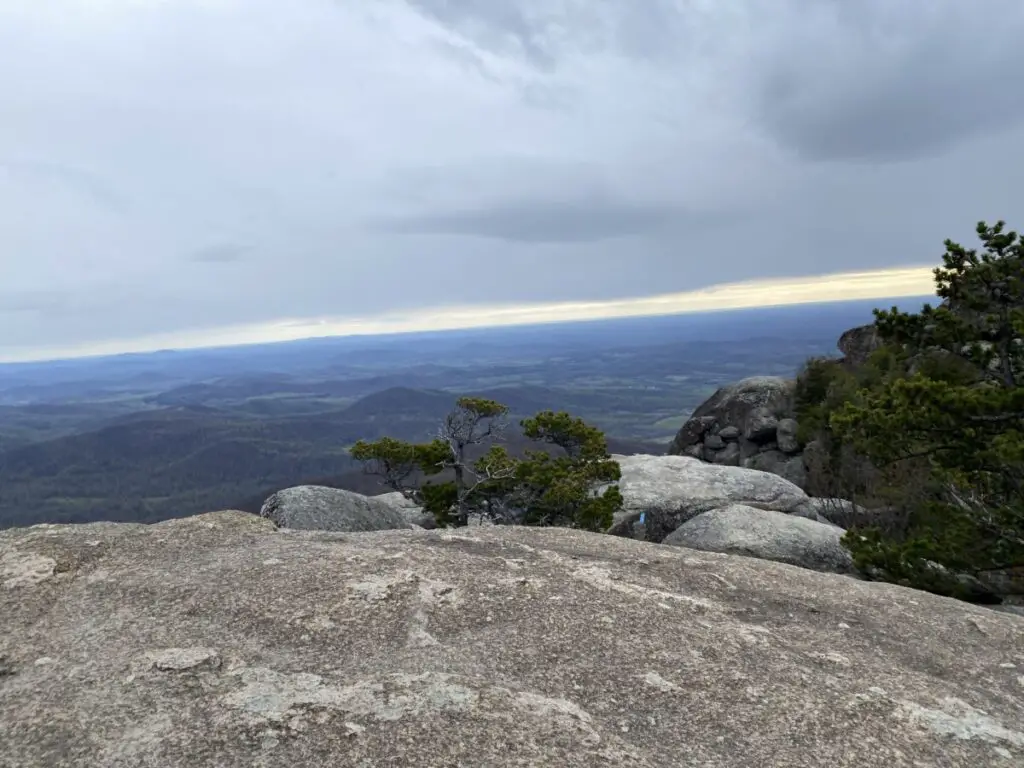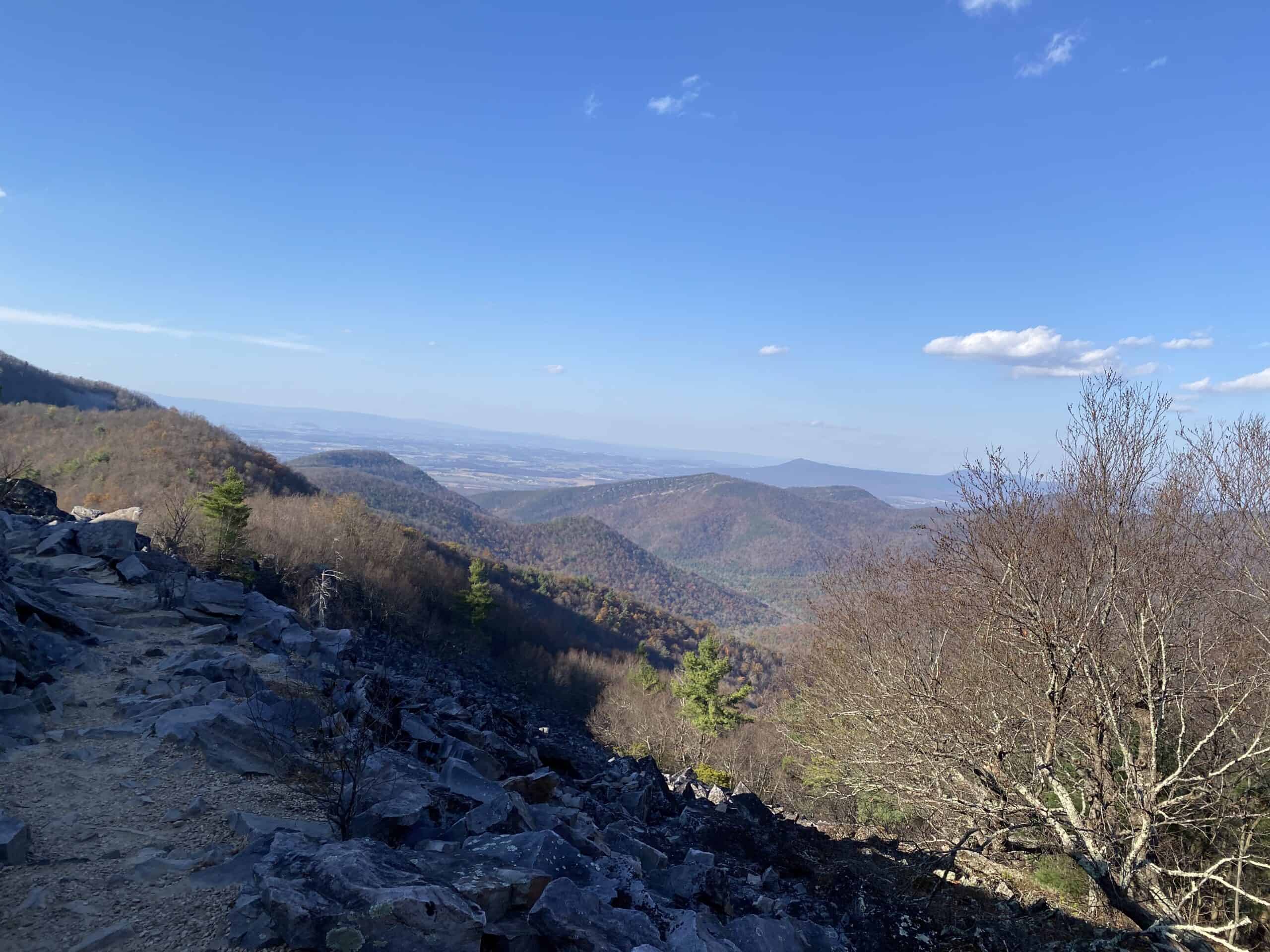I’ve been thinking a lot about my hiking goals for 2024. For me, having direction helps keep me focused and gives me something to look forward to. When I started hiking back in early 2023, I wasn’t chasing a milestone, I just knew I needed something that would support my well-being, both physically and mentally.
The truth is, I started hiking after my doctor told me I was at risk for a heart attack. That was the wake-up call. Up until then, I had been trail running three to five days a week, but I was getting burned out. So I made a shift. I started going out on the trails with no expectations, just curiosity.
I began with a few short hikes, somewhere in the 4 to 6 mile range, and then in April, I hiked Three Ridges. I didn’t set a big goal around it, I just knew I wanted to give it a try and that I probably needed to build up to it.
This year, though, I’m taking a more intentional approach. I’ll be sharing my hikes here on Ridge Raven and using my personal goals to guide my growth. That means being realistic about where I’m starting, thinking about what I want to experience, and finding that sweet spot between challenge and enjoyment.

Why Set Hiking Goals?
When you set a hiking goal, you’re creating something to work toward. It could be distance, elevation, time, or even something like completing a specific trail or summiting a local peak. What matters is that the goal fits where you are and where you want to go.
Think about your current fitness level, experience, and how much time you can realistically spend outdoors. Goals should stretch you, but they should also make you excited to lace up your boots and head out the door.
And let’s be honest, checking a trail off a list or hitting a new distance feels good. It helps you build confidence, explore new places, and stay connected to nature in a meaningful way.
Types of Hiking Goals You Can Set
One of the things I love about hiking is that your goals can look totally different from someone else’s. It’s your adventure. Make it yours.
- Distance goals: Hike 10 miles, 20 miles, or maybe build up to 50 miles in a month or over a few days.
- Elevation goals: Choose a goal like 1,000 feet, 5,000 feet, or more over time.
- Speed goals: Track your pace and work up to a steady 2 or 3 miles per hour, especially if you’re thinking of joining a hiking challenge or marathon.
- Trail goals: Set your sights on a specific trail, whether it’s a long-distance one like the Appalachian Trail or a local trail you’ve always wanted to complete.
- Peak goals: Aim to summit a specific peak in your area or work up to something bigger.
How to Set SMART Hiking Goals
I’m a big fan of goals that actually help me make progress—not ones that just sound good. That’s where the SMART method comes in: Specific, Measurable, Achievable, Relevant, and Time-bound.
- Specific: Instead of “hike more,” try “hike 10 miles a week for the next three months.”
- Measurable: Track your miles, elevation, or the number of hikes you complete.
- Achievable: Be honest about where you’re starting. You can always scale up.
- Relevant: Tie your goals to something that matters to you, like health, adventure, or training for a big trek.
- Time-bound: Give yourself a deadline to keep things moving forward.

Five Types of Hiking Goals I’m Considering This Year
Here’s how I’m thinking about my 2024 hiking goals. You can mix and match these based on your own needs and interests:
- Summit a Local Peak
Find a peak that pushes you but still feels doable. Train for it, bring the right gear, and enjoy the view from the top. - Hike a Long-Distance Trail
If you’re up for a big challenge, pick a long trail and break it into sections. I’m eyeing parts of the Appalachian Trail to prepare for a future thru-hike. - Build Hiking Endurance
Start with short hikes and gradually increase your mileage. Focus on strength, hydration, recovery, and overall health. - Improve Navigation Skills
I learned map and compass basics years ago, and they’ve come in handy more than once. This year, I want to sharpen those skills even more. - Complete a Solo Hike
Solo hikes have become one of my favorite ways to reconnect with myself. If you’re new to solo hiking, start small and build your confidence.
Bonus tip: Break big goals into smaller ones. My long-term dream is to thru-hike the Appalachian Trail, and I’ll be using 2024 to lay the foundation one hike at a time.
How I’m Tracking My Progress
Goals are only helpful if you’re keeping track. Here’s how I stay motivated:
- Hiking journal: I log the trail, mileage, time, and little reflections from the hike.
- Fitness tracker: I use it to track elevation, pace, and distance.
- Photos: I take trail snapshots and the occasional selfie to see how things shift over time.
- Mini-goals: I set monthly or seasonal targets to help build momentum.
If I find something isn’t working, I adjust. No guilt, just regroup and reset.
Making It a Routine
Adding hiking to your regular rhythm makes it easier to reach your goals without forcing it. Here are a few things that help me:
- Set a hiking schedule: I’m aiming for 2 to 3 days per week, averaging 6 miles per hike. That feels like a good fit right now.
- Use apps like AllTrails: They’re great for discovering new routes and keeping a digital log.
- Join a group if you need extra motivation: There are some great local hiking groups out there, and it’s a great way to meet other folks who love the outdoors too.
Setting hiking goals isn’t about being perfect or hitting every milestone. It’s about giving yourself a reason to show up and keep moving forward. Whether you want to go farther, climb higher, or just spend more time outside, your goals are valid. And they get to grow with you.
So what about you? Got any hiking goals for 2024? Let’s trade ideas—I’d love to hear what trail you’re dreaming of next.




Leave a Reply